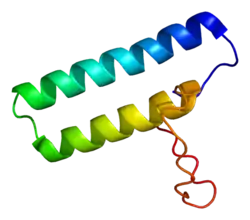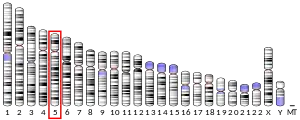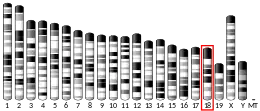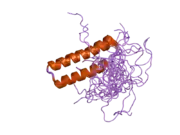| HARS1 | |||||||||||||||||||||||||||||||||||||||||||||||||||
|---|---|---|---|---|---|---|---|---|---|---|---|---|---|---|---|---|---|---|---|---|---|---|---|---|---|---|---|---|---|---|---|---|---|---|---|---|---|---|---|---|---|---|---|---|---|---|---|---|---|---|---|
 | |||||||||||||||||||||||||||||||||||||||||||||||||||
| |||||||||||||||||||||||||||||||||||||||||||||||||||
| Identifiers | |||||||||||||||||||||||||||||||||||||||||||||||||||
| Aliases | HARS1, HRS, USH3B, CMT2W, histidyl-tRNA synthetase, HARS, histidyl-tRNA synthetase 1 | ||||||||||||||||||||||||||||||||||||||||||||||||||
| External IDs | OMIM: 142810 MGI: 108087 HomoloGene: 1592 GeneCards: HARS1 | ||||||||||||||||||||||||||||||||||||||||||||||||||
| |||||||||||||||||||||||||||||||||||||||||||||||||||
| |||||||||||||||||||||||||||||||||||||||||||||||||||
| |||||||||||||||||||||||||||||||||||||||||||||||||||
| |||||||||||||||||||||||||||||||||||||||||||||||||||
| |||||||||||||||||||||||||||||||||||||||||||||||||||
| Wikidata | |||||||||||||||||||||||||||||||||||||||||||||||||||
| |||||||||||||||||||||||||||||||||||||||||||||||||||
Histidyl-tRNA synthetase (HARS) also known as histidine-tRNA ligase, is an enzyme which in humans is encoded by the HARS gene.[5][6]
Function
Aminoacyl-tRNA synthetases are a class of enzymes that charge tRNAs with their cognate amino acids. The protein encoded by this gene is a cytoplasmic enzyme which belongs to the class II family of aminoacyl tRNA synthetases. The enzyme is responsible for the synthesis of histidyl-transfer RNA, which is essential for the incorporation of histidine into proteins.[7] The gene is located in a head-to-head orientation with HARSL on chromosome five, where the homologous genes share a bidirectional promoter.[5]
Clinical significance
The gene product is a frequent target of autoantibodies in the human autoimmune disease polymyositis/dermatomyositis.[7]
Interactions
HARS has been shown to interact with EEF1B2[8] and EEF1G.[8]
References
- 1 2 3 GRCh38: Ensembl release 89: ENSG00000170445 - Ensembl, May 2017
- 1 2 3 GRCm38: Ensembl release 89: ENSMUSG00000001380 - Ensembl, May 2017
- ↑ "Human PubMed Reference:". National Center for Biotechnology Information, U.S. National Library of Medicine.
- ↑ "Mouse PubMed Reference:". National Center for Biotechnology Information, U.S. National Library of Medicine.
- 1 2 "Entrez Gene: HARS histidyl-tRNA synthetase".
- ↑ Wasmuth JJ, Carlock LR (1986). "Chromosomal localization of human gene for histidyl-tRNA synthetase: clustering of genes encoding aminoacyl-tRNA synthetases on human chromosome 5". Somat. Cell Mol. Genet. 12 (5): 513–7. doi:10.1007/BF01539922. PMID 3464104. S2CID 28520231.
- 1 2 Freist W, Verhey JF, Rühlmann A, Gauss DH, Arnez JG (1999). "Histidyl-tRNA synthetase". Biol. Chem. 380 (6): 623–46. doi:10.1515/BC.1999.079. PMID 10430027.
- 1 2 Sang Lee J, Gyu Park S, Park H, Seol W, Lee S, Kim S (2002). "Interaction network of human aminoacyl-tRNA synthetases and subunits of elongation factor 1 complex". Biochem. Biophys. Res. Commun. 291 (1): 158–64. doi:10.1006/bbrc.2002.6398. PMID 11829477.
Further reading
- Raben N, Borriello F, Amin J, Horwitz R, Fraser D, Plotz P (1992). "Human histidyl-tRNA synthetase: recognition of amino acid signature regions in class 2a aminoacyl-tRNA synthetases". Nucleic Acids Res. 20 (5): 1075–81. doi:10.1093/nar/20.5.1075. PMC 312093. PMID 1549469.
- Shi MH, Tsui FW, Rubin LA (1991). "Cellular localization of the target structures recognized by the anti-Jo-1 antibody: immunofluorescence studies on cultured human myoblasts". J. Rheumatol. 18 (2): 252–8. PMID 2023220.
- Carlock LR, Skarecky D, Dana SL, Wasmuth JJ (1985). "Deletion mapping of human chromosome 5 using chromosome-specific DNA probes". Am. J. Hum. Genet. 37 (5): 839–52. PMC 1684692. PMID 2996334.
- Wasmuth JJ, Carlock LR (1986). "Chromosomal localization of human gene for histidyl-tRNA synthetase: clustering of genes encoding aminoacyl-tRNA synthetases on human chromosome 5". Somat. Cell Mol. Genet. 12 (5): 513–7. doi:10.1007/BF01539922. PMID 3464104. S2CID 28520231.
- Tsui FW, Siminovitch L (1987). "Isolation, structure and expression of mammalian genes for histidyl-tRNA synthetase". Nucleic Acids Res. 15 (8): 3349–67. doi:10.1093/nar/15.8.3349. PMC 340734. PMID 3554142.
- O'Hanlon TP, Raben N, Miller FW (1995). "A novel gene oriented in a head-to-head configuration with the human histidyl-tRNA synthetase (HRS) gene encodes an mRNA that predicts a polypeptide homologous to HRS". Biochem. Biophys. Res. Commun. 210 (2): 556–66. doi:10.1006/bbrc.1995.1696. PMID 7755634.
- Ogata K, Kurahashi A, Nishiyama C, Terao K (1994). "Presence of role of the 5SrRNA-L5 protein complex (5SRNP) in the threonyl- and histidyl-tRNA synthetase complex in rat liver cytosol". Biochim. Biophys. Acta. 1218 (3): 388–400. doi:10.1016/0167-4781(94)90192-9. PMID 8049265.
- Maruyama K, Sugano S (1994). "Oligo-capping: a simple method to replace the cap structure of eukaryotic mRNAs with oligoribonucleotides". Gene. 138 (1–2): 171–4. doi:10.1016/0378-1119(94)90802-8. PMID 8125298.
- Tsui HW, Mok S, de Souza L, Martin A, Tsui FW (1993). "Transcriptional analyses of the gene region that encodes human histidyl-tRNA synthetase: identification of a novel bidirectional regulatory element". Gene. 131 (2): 201–8. doi:10.1016/0378-1119(93)90294-D. PMID 8406012.
- Vázquez-Abad D, Carson JH, Rothfield N (1996). "Localization of histidyl-tRNA synthetase (Jo-1) in human laryngeal epithelial carcinoma cell line (HEp-2 cells)". Cell Tissue Res. 286 (3): 487–91. doi:10.1007/s004410050718. PMID 8929351. S2CID 1552865.
- Suzuki Y, Yoshitomo-Nakagawa K, Maruyama K, Suyama A, Sugano S (1997). "Construction and characterization of a full length-enriched and a 5'-end-enriched cDNA library". Gene. 200 (1–2): 149–56. doi:10.1016/S0378-1119(97)00411-3. PMID 9373149.
- Sang Lee J, Gyu Park S, Park H, Seol W, Lee S, Kim S (2002). "Interaction network of human aminoacyl-tRNA synthetases and subunits of elongation factor 1 complex". Biochem. Biophys. Res. Commun. 291 (1): 158–64. doi:10.1006/bbrc.2002.6398. PMID 11829477.
- O'Hanlon TP, Miller FW (2002). "Genomic organization, transcriptional mapping, and evolutionary implications of the human bi-directional histidyl-tRNA synthetase locus (HARS/HARSL)". Biochem. Biophys. Res. Commun. 294 (3): 609–14. doi:10.1016/S0006-291X(02)00525-9. PMID 12056811.
- Ascherman DP, Oriss TB, Oddis CV, Wright TM (2002). "Critical requirement for professional APCs in eliciting T cell responses to novel fragments of histidyl-tRNA synthetase (Jo-1) in Jo-1 antibody-positive polymyositis". J. Immunol. 169 (12): 7127–34. doi:10.4049/jimmunol.169.12.7127. PMID 12471150.
- Lu Q, Hope LW, Brasch M, Reinhard C, Cohen SN (2003). "TSG101 interaction with HRS mediates endosomal trafficking and receptor down-regulation". Proc. Natl. Acad. Sci. U.S.A. 100 (13): 7626–31. Bibcode:2003PNAS..100.7626L. doi:10.1073/pnas.0932599100. PMC 164637. PMID 12802020.
- Rual JF, Venkatesan K, Hao T, Hirozane-Kishikawa T, Dricot A, Li N, Berriz GF, Gibbons FD, Dreze M, Ayivi-Guedehoussou N, Klitgord N, Simon C, Boxem M, Milstein S, Rosenberg J, Goldberg DS, Zhang LV, Wong SL, Franklin G, Li S, Albala JS, Lim J, Fraughton C, Llamosas E, Cevik S, Bex C, Lamesch P, Sikorski RS, Vandenhaute J, Zoghbi HY, Smolyar A, Bosak S, Sequerra R, Doucette-Stamm L, Cusick ME, Hill DE, Roth FP, Vidal M (2005). "Towards a proteome-scale map of the human protein-protein interaction network". Nature. 437 (7062): 1173–8. Bibcode:2005Natur.437.1173R. doi:10.1038/nature04209. PMID 16189514. S2CID 4427026.
- Levine SM, Raben N, Xie D, Askin FB, Tuder R, Mullins M, Rosen A, Casciola-Rosen LA (2007). "Novel conformation of histidyl-transfer RNA synthetase in the lung: the target tissue in Jo-1 autoantibody-associated myositis". Arthritis Rheum. 56 (8): 2729–39. doi:10.1002/art.22790. PMID 17665459.





